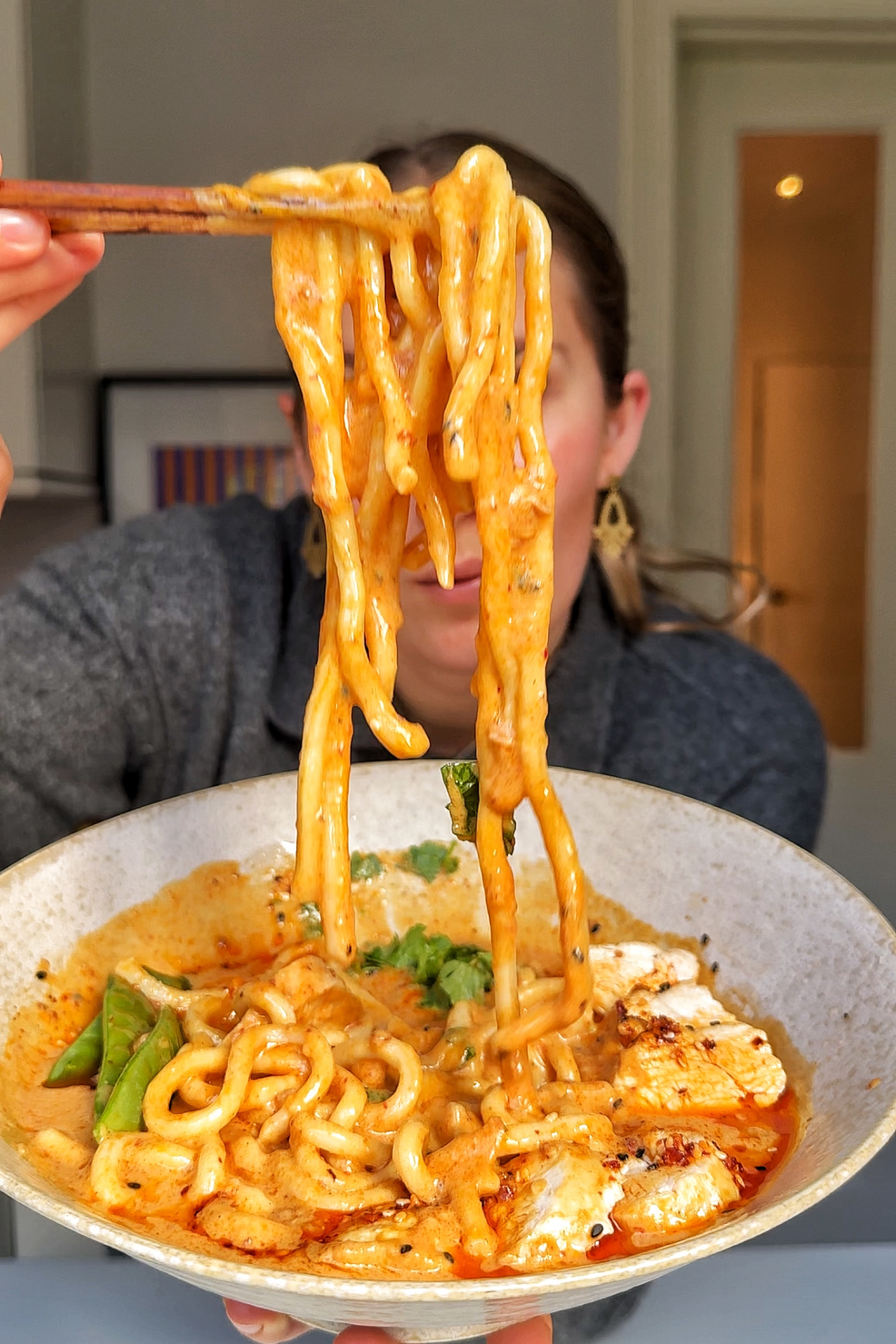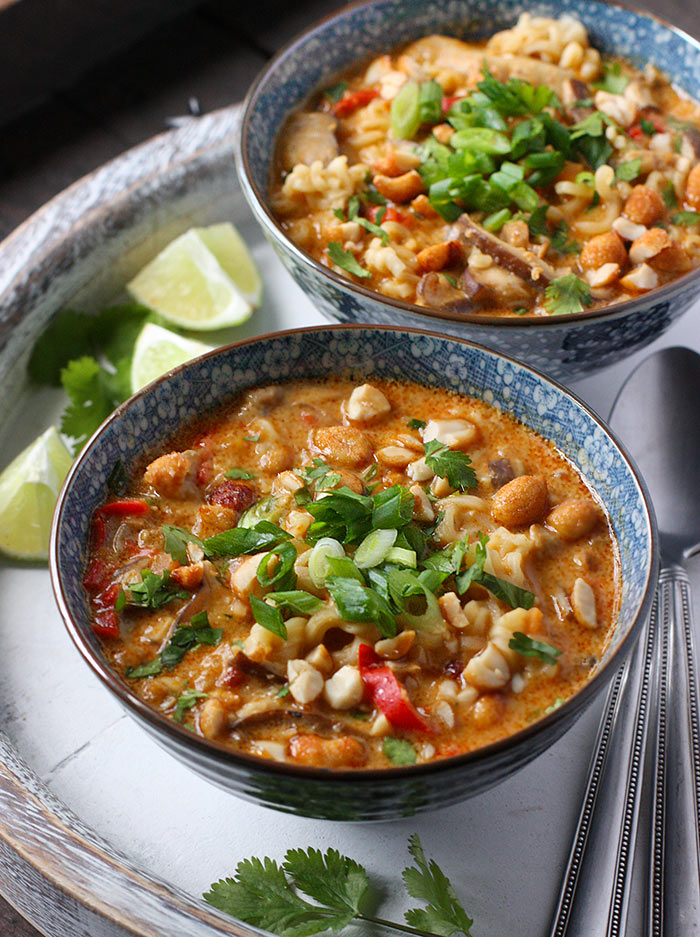Looking for a bowl thats creamy, fiery, and ready in under 20 minutes? This Korean peanut butter noodles recipe delivers exactly that a silky peanutgochujang sauce that clings to aldente noodles, with enough heat to make your taste buds dance and enough protein to keep you satisfied.
Whether youre feeding a busy family, prepping a workday lunch, or just craving comfort without the takeout price tag, this dish checks every box. Grab a pot, a spoon, and lets dive straight into the tasty details.
Essential Ingredients List
Core pantry staples (the 5ingredient version)
The beauty of this recipe is its simplicity. With just five main items you can create a sauce that feels gourmet.
- Brown rice noodles (16oz) naturally glutenfree and gives a pleasant chew.
- Creamy peanut butter (cup) the heart of the sauce, choose a natural, lowsalt variety.
- Gochujang (2Tbsp) Korean fermented chili paste that adds sweetheat and umami.
- Soy sauce or tamari (2Tbsp) balances the richness with salty depth.
- Fresh aromatics (garlic, ginger, and a splash of oil) adds brightness and complexity.
Optional addins for extra nutrition & texture
Feel free to customize the bowl to your liking. Here are some ideas that keep the dish exciting without overcomplicating it:
- Veggies: shredded carrots, sliced red cabbage, edamame, broccoli florets.
- Protein boosters: sliced chicken breast, shrimp, firm tofu, or a fried egg.
- Crunch: toasted sesame seeds, crushed peanuts, or a few kimchi bits.
When you need a faster version, the 3 ingredient peanut sauce for noodles (peanut butter, gochujang, and a splash of water) works just as well perfect for those nights when the clock is ticking.
StepbyStep Guide
Preparing the noodles Dos & Donts
1. Bring a large pot of salted water to a rolling boil.
2. Add the rice noodles and cook 23 minutes less than the package directs; you want them just shy of aldente.
3. Drain and rinse under cold water for a few seconds. This stops the cooking process and prevents the noodles from sticking together.
Building the Korean peanut sauce
While the noodles are cooling, whisk together the peanut butter, gochujang, soy sauce, minced garlic, grated ginger, and about cup warm water. If the mixture looks too thick, drizzle in a little more water until it reaches a smooth, pourable consistency. Taste and adjust:
- More gochujang for extra heat think spicy peanut butter noodles.
- A splash of lime juice for brightness.
- A drizzle of honey if you like a touch of sweetness.
Timing tricks (quickcook hacks)
| Step | Time | Tip |
|---|---|---|
| Noodle boil | 45min | Use a large pot, add a pinch of salt; this prevents noodles from sticking. |
| Sauce whisk | 2min | Warm sauce ingredients 30seconds in the microwave for easier mixing. |
| Toss & finish | 34min | Add veggies last so they keep their crunch. |
Customizing for dietary needs
If youre vegan, swap soy sauce for tamari and skip any animal protein. For a lowsodium version, halve the soy sauce and choose a lowsalt peanut butter. Glutenfree eaters can stick with rice noodles and tamari without any compromise on flavor.
Frequently Asked Questions
Can I use regular wheat noodles?
Sure, you can. Wheat noodles will give a softer bite, but the sauce still clings nicely. If you prefer a chewier texture, egg noodles are a solid middle ground.
How spicy is the gochujang peanut sauce?
Gochujang typically measures between 2,0004,000 Scoville Heat Units, which is a mildtomoderate heat. Want it hotter? Add a dash of sriracha or a pinch of crushed red pepper flakes.
Whats the best peanut butter for this recipe?
Look for a creamy, natural peanut butter with no added sugars or hydrogenated oils. Lowsalt versions keep the sauce from becoming overly salty.
Can I make this ahead of time?
Absolutely. The sauce stores up to five days in the refrigerator. Before using, give it a quick whisk with a splash of water to bring it back to the right consistency, then toss with freshly cooked noodles.
How many calories per serving?
Roughly 420kcal per cup when you use the base recipe without extra protein or oil. For a precise breakdown, you can check the USDA FoodData Central database.
Taste Test Experience
My kitchen trial
When I first tried this recipe, I made two batches: one with shredded chicken, the other fully vegan with tofu. The sauce held up beautifully after cooling, and the leftovers tasted even richer the next day a classic sign of a great noodle sauce.
Reader variations that shine
Comments from fellow home cooks (spotted on a popular food forum) highlight three crowdpleasers:
- Adding a spoonful of kimchi for a tangy crunch.
- Swapping rice noodles for thick udon for a heartier bite.
- Using almond butter instead of peanut butter for a nutallergyfriendly twist.
Benefits and Risks
Nutrition highlights
Peanut butter contributes healthy monounsaturated fats, protein, and vitaminE, while gochujang brings beneficial probiotics from fermentation and capsaicin, which may boost metabolism.
Potential concerns
Peanut allergies are a real issue; if you or a guest are allergic, consider replacing the peanut butter with sunflowerseed butter. The combination of soy sauce and gochujang can also be high in sodium, so lowsodium soy sauce or reducedsalt gochujang are smart swaps. For official guidance on peanut allergies, you can refer to the CDC website.
Printable Recipe Card
Ingredients checklist
16oz brown rice noodles
cup creamy peanut butter
2Tbsp gochujang
2Tbsp soy sauce or tamari
1Tbsp minced garlic
1tsp grated ginger
2Tbsp neutral oil
Optional veggies & protein of choice
Quick 5step instructions
- Cook noodles to aldente, rinse, set aside.
- Warm garlic, ginger, and oil in a pan (30sec).
- Whisk peanut butter, gochujang, soy sauce, and water until smooth.
- Combine sauce with noodles; toss in veggies and protein.
- Garnish with sesame seeds, crushed peanuts, and a drizzle of lime juice.
Related Recipe Ideas
Spicy Peanut Noodles with Chicken
Swap tofu for grilled chicken strips and add a splash of honey for a sweetheat balance.
Thai Peanut Noodles
Replace gochujang with Thai red curry paste for an entirely different flavor profile.
3Ingredient Peanut Sauce for Noodles
In a pinch, blend equal parts peanut butter, gochujang, and water; youve got a quick sauce that still packs a punch.
Give this Korean peanut butter noodles recipe a try tonight its fast, flexible, and ridiculously satisfying. Let us know how you made it your own, or share a photo of your bowl if you feel like bragging a little. Happy cooking!
FAQs
Can I substitute the rice noodles with wheat noodles?
Yes, wheat or egg noodles work fine; just cook them a minute less so they stay firm and the sauce clings.
How can I make the dish spicier?
Add extra gochujang, a dash of sriracha, or sprinkle crushed red‑pepper flakes to taste.
Is there a vegan version of this recipe?
Use tamari instead of soy sauce and skip animal proteins. The base sauce is already plant‑based.
What can I use instead of peanut butter for a nut‑allergy friendly option?
Sunflower‑seed butter or almond butter (if no nut allergy) replicate the creaminess without peanuts.
How long can the sauce be stored?
The peanut‑gochujang sauce keeps up to five days refrigerated; whisk in a little water before reheating.















